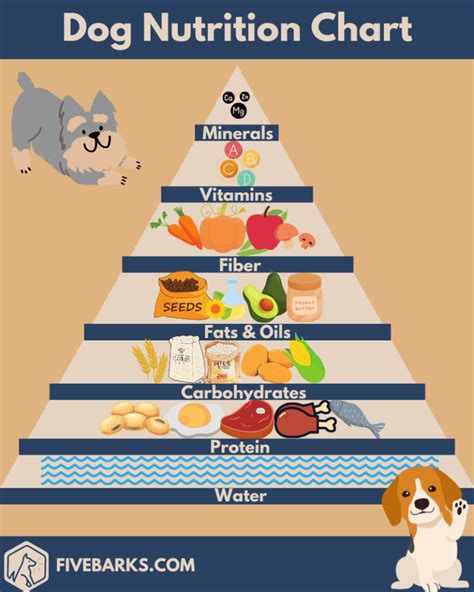Introduction
Dogs are beloved companions that bring joy and unconditional love into our lives. However, caring for a dog extends beyond providing a warm bed and regular belly rubs. Their health and well-being depend on responsible pet ownership, which includes ensuring they receive proper nutrition. This comprehensive guide will navigate you through the intricacies of dog health and nutrition, empowering you to make informed decisions that optimize your furry companion’s well-being.

Understanding Dog Nutrition
1. Macronutrients: The Building Blocks
Dogs, like humans, require a balanced diet comprising macronutrients: carbohydrates, proteins, and fats.
-
Carbohydrates: Provide energy and help regulate blood sugar levels. Good sources include brown rice, sweet potatoes, and oats.
-
Proteins: Essential for building and repairing tissues, muscles, and enzymes. Animal proteins like chicken, fish, and lamb are highly digestible for dogs.
-
Fats: A concentrated energy source that also supports cell membrane function and hormone production. Healthy fat sources include fish oil, flaxseed oil, and chicken fat.
2. Micronutrients: The Essential Vitamins and Minerals
Micronutrients, including vitamins and minerals, play crucial roles in various bodily functions.
-
Vitamins: Involved in metabolism, growth, and immune function. Vitamin A enhances vision, while vitamin B complex supports energy production.
-
Minerals: Essential for bone development, muscle function, and blood clotting. Calcium and phosphorus strengthen bones, while iron supports red blood cell production.
Feeding Your Dog: A Balanced Approach
1. Age and Activity Level Considerations
Dogs’ nutritional needs vary depending on their age, size, and activity level. Puppies require higher protein levels for growth, while seniors may benefit from a lower-calorie diet. Active dogs need more energy-dense food than couch potatoes.
2. Determining the Right Amount
Overfeeding can lead to obesity, while underfeeding can result in malnutrition. Follow the recommended feeding guidelines on pet food labels and adjust portions based on your dog’s individual needs.
3. Choosing the Best Food
A premium-quality dog food formulated for your dog’s age and activity level is essential. Look for a food that meets the Association of American Feed Control Officials (AAFCO) nutritional standards.
-
Dry food: Convenient and shelf-stable, but can be less palatable than wet food.
-
Wet food: Contains more moisture and is often more flavorful, but can be more expensive than dry food.
-
Homemade food: Can provide customization but requires careful planning to ensure nutritional adequacy.
Common Health Conditions Related to Nutrition
1. Obesity: Excess weight can lead to joint pain, heart disease, and breathing difficulties.
2. Diabetes: A chronic condition where the body doesn’t produce enough insulin.
3. Gastrointestinal Issues: Poor nutrition can cause diarrhea, vomiting, and bloating.
4. Kidney Disease: A diet high in protein and phosphorus can accelerate kidney damage.
Dietary Concerns and Supplements
1. Allergies and Food Sensitivities: Some dogs may be allergic to certain ingredients in pet food. Symptoms include skin irritation, itching, and digestive upset.
2. Supplements: In certain cases, veterinarians may recommend dietary supplements to address specific health concerns.
-
Glucosamine and Chondroitin: Support joint health and reduce inflammation.
-
Probiotics: Promote a healthy gut microbiome.
-
Omega-3 Fatty Acids: Enhance skin and coat health and support cognitive function.
Special Dietary Considerations for Senior Dogs
As dogs enter their senior years, their nutritional needs change.
1. Senior-Specific Formula: A diet tailored to senior dogs typically contains reduced calories, joint-supporting nutrients, and fiber for digestion.
2. Weight Management: Obesity is a common concern in senior dogs, so portion control and regular exercise are crucial.
3. Dental Care: Regular dental checkups and a diet that promotes dental health can help prevent periodontal disease.
Conclusion
Ensuring optimal dog health and nutrition requires a comprehensive understanding of their unique dietary needs. By following the guidelines outlined in this guide, you can make informed choices that promote your furry companion’s well-being throughout their life. Remember to consult with your veterinarian for personalized advice and to address any specific health concerns or dietary changes. Together, you can create a nutrition plan that supports your dog’s health, happiness, and longevity.





















